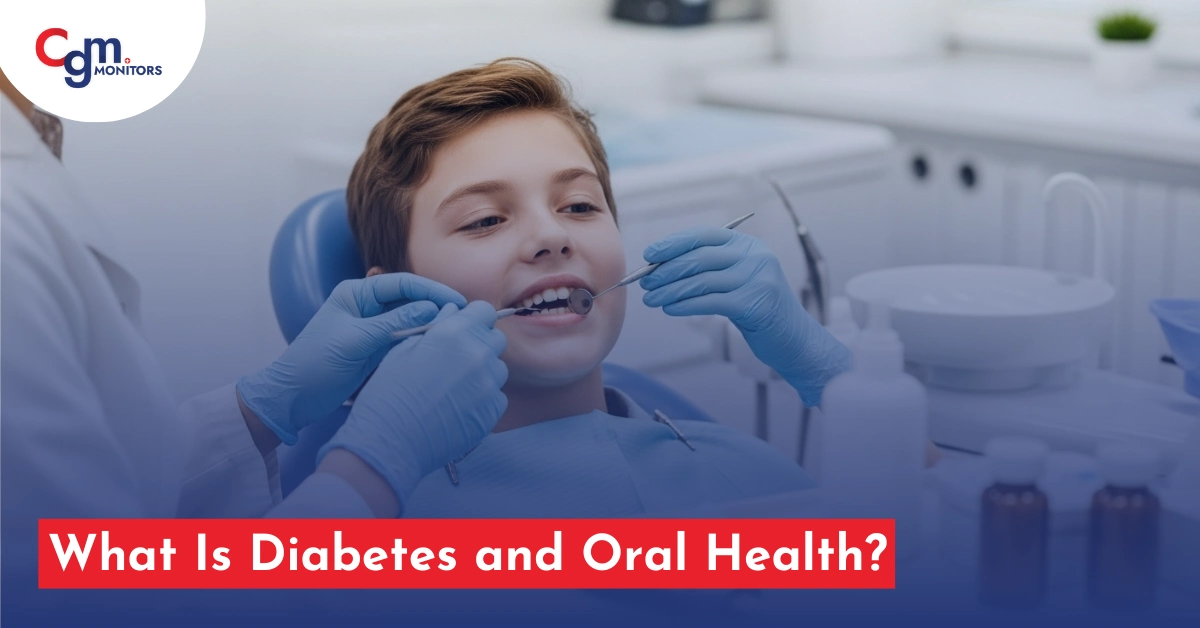What Is Diabetes and Oral Health?

Table of content
Diabetes And Oral Health problems are some of the medical conditions which influence the sugar-processing capability of the body. On the other hand, it also affects the way your mouth and teeth work. If you have high sugar levels in your blood, then fine dental health would be highly significant.
How Does Diabetes and Oral Health Affect Your Mouth?
Diabetic disease seriously weakens your immunity. It makes the mouth of humans prone to many infections and thus causes problems like
- Gum Disease: This high sugar in the blood creates favourable conditions for bacteria growth. This results in infections in your gums. If left untreated for so long, gum disease can result in tooth loss.
- Dry Mouth: Diabetes causes low saliva flow. Saliva helps in cleaning the bacteria and food from your mouth, and hence, if the saliva flow is reduced, it may lead to tooth decay.
- Delayed Healing: If one suffers from diabetes, wounds in one’s mouth take a considerably long time to heal. This can be due to cuts or sores from your dentures or due to some injuries.
- Thrush: Diabetic patients are prone to thrush which is a type of fungal infection of the mouth. The infection typically appears with white patches.
Oral Diseases Symptoms
The following are signs that might point out that something is wrong with your oral
- Red, swollen, or bleeding gums
- Persistent foul breath
- Dry or cracked mouth
- Sensitivity of the teeth
- White or red patches inside your mouth
- Visit a dentist if you experience any of these symptoms.
What You Can Do to Help Maintain Your Oral Health
Living with Oral health and diabetes is tough, but fighting to keep oral health intact is quite easy. Here’s how you can do it:
- Maintaining the Blood Sugar: The first critical aspect that you can do is to maintain the blood sugar at a level. When the blood sugar stays normal, the control of diabetes and oral health problems will keep your mouth safe from infections and gum disease.
- Brush and floss two minutes every day: Brush your teeth for two minutes twice a day. You can use a soft-bristled toothbrush and fluoride toothpaste. Don’t forget to floss once daily to remove plaque between your teeth and around your gums.
- Hydrate: It prevents dry mouth. You can also chew sugar-free gum or use some mouth rinses that increase saliva flow in your mouth.
- Be alert to warning signs: Something odd going on in your mouth is usually warning you. If you notice red, puffy gums or worse yet, bad breath, don’t brush it off. The more accurate and the quicker the treatment, the less likely possible serious problems may occur.
- Dental Visits: Always see your dentist examining your mouth regularly. Ensure you are booking a dental cleaning and a check-up every six months with your dentist, and ensure you tell them that you are suffering from this disease, including any treatment you are undergoing. This visit helps diagnose minor problems early before they become major.
- Quit Smoking: To avoid oral health problems and diabetes, a person must quit smoking. If he is a smoker, the process will help him control his diabetes too. Smoking causes low resistance and it becomes challenging for a person to combat infections like gum disease.
Conclusion:
If you have diabetes and oral health problems, dental care should be included in good care of your overall health. They may avoid huge problems if you go regularly to a dentist and do individual oral hygiene. Discuss all the changes in your mouth with your dentist and inform them about your diabetes and oral health problems as well.















Write a comment
Your email address will not be published. All fields are required